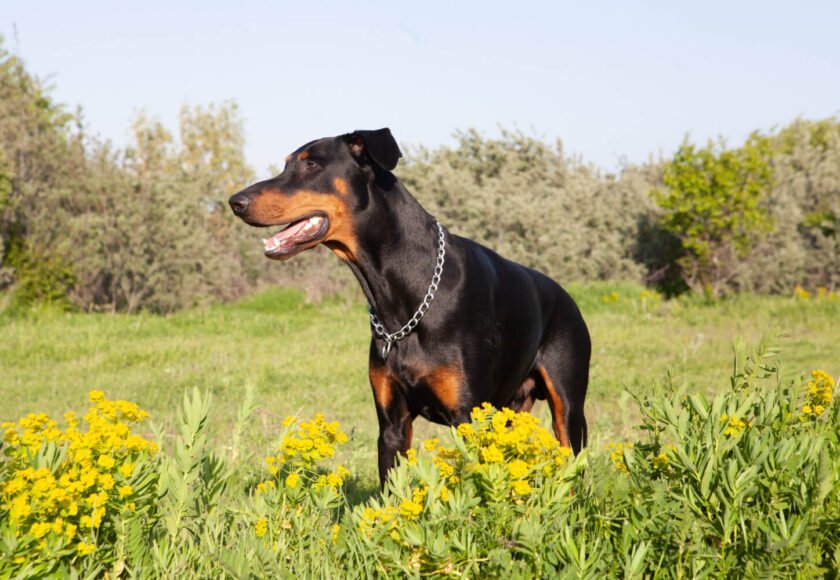When it comes to dog breeds, few stir up as much controversy as the Pitbull. Often imitated in the television as hostile or changeable, Pitbulls have grown a prestige that sparks fear, debate, and even breed-particular bans in some domains. But by what method much concerning this event, and by what method much is best seller?
In reality, like some added breed, a Pitbull’s practice depends laboriously on by virtue of what it’s nurtured, prepared, and medicated. Many Pitbull landowners will state to you their dogs are sympathetic, faithful, and gentle—even about kids. So where does the fear emanate?
What is a “Pitbull”?
The term “Pitbull” frequently sparks disorientation, principally because it’s not a sole breed but a comprehensive label secondhand for a group of dogs that share comparable material characteristics and genealogy. These dogs were initially developed for substance and strength, frequently secondhand in bull-baiting or farm work, that provided their sinewy build and extreme strength.
Today, “Pitbull” usually refers to any distinguishing breeds, though the description can change established country or domain. Despite their tough looks, many Pitbull-type dogs are popular for their warm, fun-loving, and even silly celebrities.
- Not a Single Breed: “Pitbull” is an umbrella term that includes several breeds like the American Pit Bull Terrier, American Staffordshire Terrier, Staffordshire Bull Terrier, and sometimes the American Bully.
- Shared Ancestry: Most Pitbull-type dogs descend from terriers and bulldogs, originally bred for strength, agility, and determination.
- Similar Physical Traits: Broad heads, muscular bodies, and short coats are common physical features across Pitbull breeds.
- High Intelligence: Pitbulls are smart and eager to please, making them highly trainable with the right approach.
- Human-Friendly by Nature: Contrary to popular belief, well-raised Pitbulls are known for being affectionate and loyal to their families.
- Often Misidentified: Many dogs labeled as “Pitbulls” are actually mixed breeds or other lookalike dogs, leading to confusion and unjustified fear.
Common Myths About Pitbulls
Pitbulls are often misunderstood, largely due to misinformation and sensationalized stories in the media. These myths have led to unfair stereotypes and, in many places, legal restrictions. But most of these fears are rooted in myths rather than reality.
Let’s take a closer look at some of the most common myths about Pitbulls—and the truth behind them.
Myth #1: Pitbulls are naturally aggressive and dangerous
This is one of the most widespread and damaging myths. In truth, Pitbulls are not inherently aggressive toward people. Like any dog, their behavior depends on how they are raised, trained, and treated. Many Pitbulls are loving, gentle, and great with families, especially when socialized from a young age. The problem usually lies with irresponsible ownership, not the breed itself.
Myth #2: Pitbulls have locking jaws
A common myth claims Pitbulls have a special jaw mechanism that “locks” when they bite. This is completely false. There is no scientific evidence or anatomical structure that gives Pitbulls the ability to lock their jaws. Their bite strength is comparable to many other breeds of similar size.
Myth #3: Pitbulls are more likely to attack than other breeds
While Pitbulls are often featured in dog bite statistics, this is partly because they’re commonly misidentified and are more likely to be reported. Studies show that many other breeds, including popular ones like Golden Retrievers or Labradors, can also bite under certain conditions. The key factor in any dog’s behavior is training and environment—not breed.
Myth #4: Pitbulls are not safe around children
In reality, many Pitbulls are incredibly affectionate and gentle with children. Their tolerance, loyalty, and playful energy often make them great family pets. However, as with any dog, children should always be supervised and taught how to interact respectfully with pets to avoid accidents.
Myth #5: Pitbulls can’t get along with other animals
While some Pitbulls may have a strong prey drive or be reactive to other dogs, this isn’t unique to the breed. With proper training, early socialization, and a responsible owner, many Pitbulls live peacefully with other dogs, cats, and even smaller pets. Like people, each dog is an individual.
Facts About Pitbulls Every Dog Owner Should Know
While myths have painted a misleading picture of Pitbulls, the truth about these dogs is much more balanced—and even heartwarming. Pitbulls can be loyal, intelligent, and deeply loving companions when they’re in the right hands. If you’re considering owning one or just want to better understand the breed, knowing the facts is key.
Here are some important truths every dog lover should know about Pitbulls:
Fact #1: Pitbulls are extremely loyal and affectionate
Pitbulls are often called “nanny dogs” because of their deep bond with their families and especially with children. They’re known for being people-oriented and thrive on companionship and love. Once bonded, they are loyal to a fault and love to snuggle just as much as they love to play.
Fact #2: They are highly intelligent and eager to learn
These dogs are smart and respond well to training when given positive reinforcement. They pick up commands quickly and enjoy mental challenges, making them excellent candidates for obedience training, agility sports, and even therapy work.
Fact #3: Pitbulls are energetic and need regular exercise
Pitbulls have a lot of physical and mental energy, which means they require daily walks, playtime, and stimulation to stay happy and healthy. Without it, they can become bored or frustrated—like any active breed—which may lead to behavioral issues.
Fact #4: They can be prone to certain health issues
Like most breeds, Pitbulls have some health concerns to watch for. Common ones include hip dysplasia, skin allergies, and certain heart conditions. Regular vet check-ups and a healthy diet can help manage or prevent many of these issues.
Fact #5: They need responsible and consistent owners
Pitbulls thrive under owners who provide structure, boundaries, and love. They do best in homes where they are part of the family and treated with respect and care. When properly raised, Pitbulls are among the most loyal and rewarding dogs to own.
Fact #6: Many Pitbulls are rescue success stories
Thousands of Pitbulls are rescued every year from neglect, abuse, or abandonment—and many go on to become loving family pets, therapy dogs, and even service animals. Their resilience and ability to trust again speak volumes about their character.
Things to Consider When Getting Pitbull as Pet
Getting a Pitbull as a pet can be an incredibly rewarding experience, but it also comes with a level of responsibility. This breed is strong, intelligent, and full of personality, which means they need an owner who’s prepared to meet their physical and emotional needs. Before bringing one home, it’s important to evaluate your lifestyle, living situation, and ability to provide the right environment.
Here are some key things to consider before adopting or buying a Pitbull:
- Commitment to Training: Pitbulls need consistent, positive training from an early age. They respond well to structure and thrive under owners who are patient and confident leaders.
- Daily Exercise Needs: These dogs have lots of energy, so regular walks, playtime, and mental stimulation are a must to prevent boredom or destructive behavior.
- Socialization is Key: Early and ongoing socialization with people, other dogs, and new environments helps shape a well-rounded and friendly Pitbull.
- Home Environment: Pitbulls are best suited for homes where they’re part of the family and not left alone for long periods. They can live in apartments, but need daily activity and attention.
- Health & Grooming: Though they have short coats, Pitbulls may require care for skin sensitivities. Routine vet visits and a balanced diet are essential.
- Breed-Specific Laws (BSL): Some areas have restrictions or bans on owning Pitbulls. Always check local laws and housing policies before adopting.
- Time and Attention: Pitbulls crave human connection. If you have the time, patience, and love to offer, they’ll reward you with endless loyalty and affection.
Related Blog: Pitbull vs Bulldog: A Comprehensive Guide
Are Really Pitbulls Dangerous or Misunderstood?
Pitbulls have long been caught in the crossfire between public fear and passionate advocacy. Often judged by their appearance or isolated incidents, they’ve been labeled as “dangerous” without looking deeper into the real causes of aggression—neglect, poor training, and irresponsible ownership. Sadly, these stereotypes continue to impact how society views and treats them.
In truth, no breed is inherently dangerous. A dog’s behavior is shaped far more by its environment, training, and how it’s treated than by its breed. Many Pitbulls are affectionate, playful, and gentle companions who thrive in loving homes.
Are Pitbulls Really Dangerous or Misunderstood?
The answer is clear: Pitbulls are deeply misunderstood. While their strength and energy require responsible ownership, they are not the vicious animal’s media headlines often make them out to be. With proper training, care, and socialization, Pitbulls can be some of the most loyal and loving pets you’ll ever meet.
FAQs About Indian Cat vs Persian Cat
Still unsure about Pitbulls and whether they make safe, loving pets? Here are answers to some of the most frequently asked questions to help clear up your doubts:
Q1. What makes people think Pitbulls are dangerous?
Pitbulls are often portrayed negatively in the media due to isolated incidents and their muscular appearance. This has led to unfair stereotypes, even though many behavioral issues come from poor training, neglect, or abuse—not the breed itself.
Q2. Are Pitbulls banned in India or other countries?
In India, there is no nationwide ban on Pitbulls, but some housing societies or local laws may restrict them. In contrast, countries like the UK, Australia, and parts of Canada have breed-specific legislation that bans or restricts ownership.
Q3. Can Pitbulls live peacefully with other pets?
Yes, with proper socialization and training, many Pitbulls coexist peacefully with other dogs, cats, and household pets. It’s important to introduce them gradually and supervise interactions, especially in the beginning.
Q4. Can Pitbulls be trained to be friendly?
Absolutely. Pitbulls are intelligent and eager to please, which makes them highly trainable. With positive reinforcement and early socialization, they can grow into friendly, well-mannered dogs.
Q5. Is it safe to have a Pitbull around children?
Yes, many Pitbulls are known for being affectionate and gentle with kids. Like with any breed, supervision and teaching kids how to properly interact with dogs are essential for safety and harmony.
Conclusion
Pitbulls may have a tough reputation, but behind their muscular build and intense stare lies a heart full of loyalty, love, and playfulness. Like any dog, they need guidance, patience, and a safe environment to thrive—and when given that, they become some of the most devoted companions you can have.



